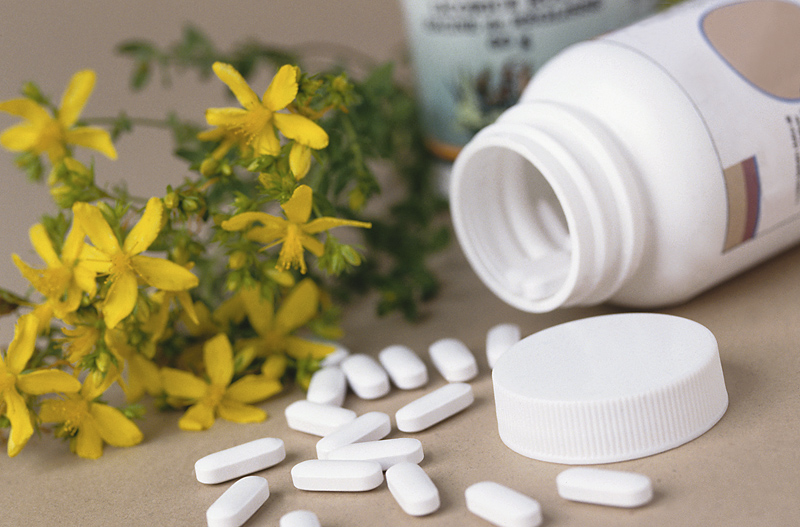
MONDAY, March 24, 2014 (HealthDay News) — Medical marijuana pills and sprays might ease the symptoms of multiple sclerosis, but most other alternative therapies do little to lessen the pain and muscle rigidity that often accompanies the disease, according to new guidelines.
To reach that conclusion, an expert panel from the American Academy of Neurology reviewed more than 40 years of research on alternative medicine treatments for multiple sclerosis (MS).
In addition to the recommendations about medical marijuana use, the nine experts also found that ginkgo biloba might help with the fatigue of MS and reflexology may ease MS symptoms such as tingling, numbness and other unusual skin sensations. Bee sting therapy and omega-3 fatty acids, however, offer weak evidence supporting their use.
“It’s a very common practice in the MS patient population to try alternative therapies,” said the author of the guidelines, Dr. Vijayshree Yadav, clinical director of Oregon Health & Science University’s MS Center, in Portland.
“The problem is there was never an evidence-based recommendation for MS patients or those taking care of patients,” Yadav said. “This is a first step to educate each audience.”
The guidelines are published in the March 25 issue of the journal Neurology.
Affecting more than 2.3 million people worldwide, MS causes a variety of symptoms such as loss of balance, vision loss, bowel problems, slurred speech and numbness, which can come and go. The disease of the central nervous system is thought to be caused by an inflammatory response of the immune system, which attacks nerve tissue in the brain and spinal cord.
According to the academy, two types of conventional drugs are available for the incurable disorder: disease-modifying therapies, which can slow progression and reduce the number of relapses, and symptomatic therapies, which relieve some symptoms but don’t affect the course of the disease.
Of all the alternative therapies reviewed, the experts’ strongest support was for medical marijuana pills and spray, which moderate evidence indicated could ease MS patients’ pain, frequent urination and muscle rigidity known as spasticity. Not enough evidence showed whether smoking marijuana is helpful in treating MS symptoms, Yadav added.
The researchers said there can be serious side effects with medical marijuana, such as seizures, dizziness, thinking and memory problems, and depression. Since some people with MS face a higher risk for depression and suicide, patients should discuss the safety of medical marijuana with their doctor.
Between 33 percent and 80 percent of MS patients use various alternative therapies to treat their symptoms, especially women, those with higher education levels and those reporting poorer health, according to the academy. But the safety of most of these therapies is unknown, and most are not regulated by the U.S. Food and Drug Administration.
Timothy Coetzee, chief advocacy, services and research officer for the National MS Society, was not involved in crafting the guidelines, but said the potential of marijuana and its derivatives as a treatment for MS symptoms is important. “I think it really emphasizes our approach to support the rights of people with MS to work with their doctors, recognizing that they need to do this in the context of the legal regulations of the state they’re in,” he said.
Marijuana-based spray isn’t legally available in the United States, Yadav said, but is sometimes obtained by U.S. patients from Canada, where the spray is legally available.
Man-made marijuana pills, known as dronabinol and nabilone, are FDA-approved for nausea and vomiting associated with chemotherapy. Yadav said MS patients can be prescribed the pills as an “off-label” use, at their doctors’ discretion.
Yadav said she was surprised to find benefits from the use of an alternative treatment known as magnetic therapy, in which magnets are placed on the skin to produce a magnetic force that is thought to improve body function. Moderate evidence showed magnetic therapy reduced tiredness in MS patients, but it did not help with symptoms of depression.
Coetzee said the guidelines are important because they will help inform conversations between people with MS and their doctors about strategies they can employ to reduce symptoms, which are often a combination of conventional and alternative therapies.
“We’re at a place where we need to continue to understand and better appreciate the benefits of what we know and don’t know about [alternative medicine],” he said. “I view it as integrated care. It’s important we continue to keep our options open so people with MS can live their best lives.”
More information
The U.S. National Institute of Neurological Disorders and Stroke offers more information on multiple sclerosis.
Copyright © 2026 HealthDay. All rights reserved.

